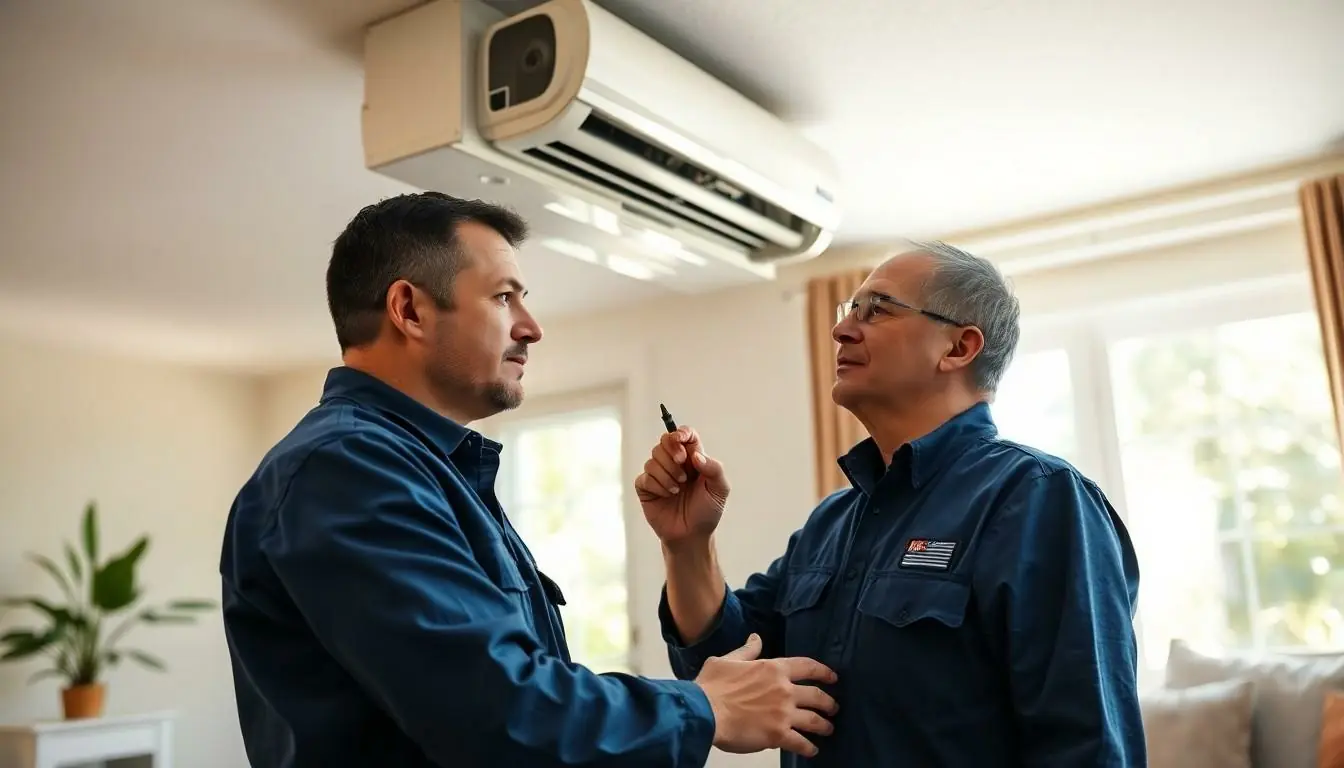Thinking about diving into the world of home inspection? It’s a smart move. With the housing market booming, there’s never been a better time to grab your hard hat and magnifying glass. But how long does it really take to go from novice to home inspection pro? Spoiler alert: it’s not as long as waiting for your coffee to brew.
In just a few weeks to a couple of months, you could be well on your way to earning that shiny certification. Imagine strolling through homes, uncovering hidden issues, and saving the day for unsuspecting buyers. It’s not just a job; it’s an adventure! So, let’s break down the timeline and get you started on this exciting path.
Table of Contents
ToggleUnderstanding The Role Of A Home Inspector
The role of a home inspector involves evaluating the condition of residential properties. Inspectors analyze various components, including roofs, basements, plumbing systems, and electrical systems. Assessing these crucial elements enables inspectors to identify potential problems before buyers finalize their purchases.
Training prepares individuals for this role through coursework and hands-on experience. Certification requirements typically vary by state. Some regions mandate a specific number of inspection hours while others may emphasize classroom instruction. Aspiring inspectors should research local regulations to ensure compliance.
Communication skills play a vital role in this profession. Inspectors must convey findings clearly to clients, aiding them in understanding any issues present in the property. Providing detailed reports enhances their credibility and helps clients make informed decisions.
Technological advancements impact the inspection process. Many inspectors utilize software and tools for reporting, which can streamline workflow and increase accuracy. Familiarity with the latest technology can also give inspectors a competitive edge in a growing market.
The work schedule varies, depending on factors such as client demands and property availability. Flexibility allows home inspectors to adapt to changing situations. Professionals often find themselves inspecting multiple properties within a single day, which can lead to a dynamic work environment.
Career growth opportunities exist within the home inspection field. Inspectors can specialize in areas like mold assessment, environmental inspections, or commercial properties. This specialization can lead to increased income potential and further professional development.
Factors Influencing Timeframe

Several factors influence the timeframe for becoming a home inspector. Understanding these can help aspiring inspectors prepare efficiently.
Education Requirements
Education often serves as the first step in becoming a home inspector. Many individuals complete a high school diploma or equivalent, while others pursue additional education in fields like construction or engineering. Courses cover essential topics such as property inspection standards and safety regulations. Completing a comprehensive training program, which typically lasts a few weeks to a few months, offers hands-on experience, crucial for success in the field. Programs vary in length and depth depending on the institution, and they may provide a certificate upon completion.
Licensing and Certification
Licensing and certification processes differ across states, impacting the duration for aspiring home inspectors. Certain states require individuals to pass a written exam and fulfill a specific number of hours in supervised inspections. Obtaining a license may involve completing pre-licensing education requirements, which often takes several months. Some states also mandate ongoing education to maintain licensure. Navigating the certification process requires attention to the specific regulations in one’s state, which can affect the overall timeline.
Steps To Becoming A Home Inspector
Aspiring home inspectors can follow a structured path to achieve their goal. Key actions include completing training programs and gaining practical experience.
Completing Training Programs
Training programs equip individuals with the foundational knowledge needed for home inspection. Many programs offer a combination of classroom instruction and online coursework. Typically, these programs cover essential topics such as building codes, safety standards, and inspection techniques. Some states require specific training hours to meet certification requirements. Choosing a reputable institution enhances credibility and prepares candidates for the future. Researching local programs can uncover options that align with individual schedules and learning preferences.
Gaining Practical Experience
Gaining hands-on experience is crucial for developing practical skills in home inspection. Many training programs include an internship component that allows aspirants to work with experienced inspectors. Shadowing seasoned professionals exposes individuals to real-world scenarios and helps build confidence. Completing a specific number of supervised inspections often fulfills state licensing requirements. Networking with industry professionals can open doors for mentorship and job opportunities. Taking the initiative to participate in local home inspections showcases knowledge and commitment to potential employers.
Average Timeframe Overview
Aspiring home inspectors can expect a timeline ranging from a few weeks to several months. Typically, foundational training programs last 2 to 6 weeks, covering essential topics like building codes and safety standards. Completing these courses equips individuals with the necessary knowledge to enter the field.
Hands-on experience plays a significant role in the process. Many individuals undergo internships lasting 1 to 3 months, where they work alongside experienced inspectors. This practical exposure fosters skill development and prepares them for real-world inspections.
Certification requirements vary significantly by state. Some states mandate passing a written exam and completing a set number of supervised inspections. The timeline for obtaining a license might add another 1 to 3 months, depending on local regulations.
Networking can accelerate the journey. Knowing industry professionals may lead to mentorship opportunities, enhancing learning experiences and job prospects. Building these connections often requires proactive engagement within the local inspection community.
Staying updated on ongoing education is vital. Some states require inspectors to complete continuing education courses to maintain their licenses. This added commitment can also extend the transition to becoming a fully licensed inspector.
Overall, prospective home inspectors should be prepared for a journey that typically spans 2 to 6 months, including training, practical experience, and certification. Individual dedication and state requirements ultimately shape this timeframe.
Regional Variations In Timeframe
Timeframes for becoming a home inspector vary across different regions. Some states require specific coursework, while others emphasize on-the-job training. Certification can take anywhere from a few weeks to several months, depending on local regulations.
In California, aspiring inspectors may complete training in as little as 2 months. That training typically includes both online courses and practical experience. States like Texas might necessitate additional hours of supervised inspections, extending the timeframe to around 4 months.
Northeast states like New York have unique licensing requirements, often requiring at least 40 hours of training and passing a state exam. This can add an additional month to the overall timeline. Meanwhile, Midwestern states often follow similar patterns, but requirements can differ within the same state, affecting completion time.
Networking opportunities also contribute to differences in completion times. Regions with more established home inspection communities may facilitate quicker access to mentorships and internships. Those in more rural areas might face challenges, leading to longer durations for gaining practical experience.
Ultimately, specific requirements in each state dictate the duration necessary to enter the field as a certified home inspector. Understanding regional differences allows prospective inspectors to plan their journey effectively.
Becoming a home inspector offers a promising career path with quick entry into the field. With dedication and the right training, aspiring inspectors can transition into this rewarding profession within a few months. The combination of flexible schedules and opportunities for specialization makes it an attractive option for many.
As the housing market continues to thrive, the demand for skilled home inspectors is likely to grow. Those considering this career should focus on meeting state-specific requirements and enhancing their skills through hands-on experience. By doing so, they can position themselves for success in a dynamic and fulfilling industry.







